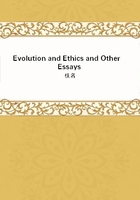
第63章
But what became of the Franciscan experiment?If there was one rule rather than another on which the founder laid stress, it was that his army of friars should be absolute mendicants, keeping themselves sternly apart from all worldly entanglements. Yet, even before the death of Francis, in 1226, a strong party, headed by Elias of Cortona, the deputy of his own appointment, began to hanker after these very things; and, within thirty years of that time, the Franciscans had become one of the most powerful, wealthy, and worldly corporations in Christendom, with their fingers in every sink of political and social corruption, if so be profit for the order could be fished out of it; their principal interest being to fight their rivals, the Dominicans, and to persecute such of their own brethren as were honest enough to try to carry out their founder's plainest injunctions. We also know what has become of Loyola's experiment. For two centuries the Jesuits have been the hope of the enemies of the Papacy; whenever it becomes too prosperous, they are sure to bring about a catastrophe by their corrupt use of the political and social influence which their organization and their wealth secure.
With these examples of that which may happen to institutions founded by noble men, with high aims, in the hands of successors of a different stamp, armed with despotic authority, before me, common prudence surely requires that, before advising the handing over of a large sum of money to the general of a new order of mendicants, I should ask what guarantee there is that, thirty years hence, the "General" who then autocratically controls the action, say, of 100,000 officers pledged to blind obedience, distributed through the whole length and breadth of the poorer classes, and each with his finger on the trigger of a mine charged with discontent and religious fanaticism; with the absolute control, say, of eight or ten millions sterling of capital and as many of income; with barracks in every town, with estates scattered over the country, and with settlements in the colonies--will exercise his enormous powers, not merely honestly, but wisely? What shadow of security is there that the person who wields this uncontrolled authority over many thousands of men shall use it solely for those philanthropic and religious objects which, I do not doubt, are alone in the mind of Mr. Booth? Who is to say that the Salvation Army, in the year 1920, shall not be a replica of what the Franciscan order had become in the year 1260?
The personal character and the intentions of the founders of such organizations as we are considering count for very little in the formation of a forecast of their future; and if they did, it is no disrespect to Mr. Booth to say that he is not the peer of Francis of Assisi. But if Francis's judgment of men was so imperfect as to permit him to appoint an ambitious intriguer of the stamp of Brother Elias his deputy, we have no right to be sanguine about the perspicacity of Mr. Booth in a like matter.
Adding to all these considerations the fact that Mr. Llewelyn Davies, the warmth of whose philanthropy is beyond question, and in whose competency and fairness I, for one, place implicit reliance, flatly denies the boasted success of the Salvation Army in its professed mission, I have arrived at the conclusion that, as at present advised, I cannot be the instrument of carrying out my friend's proposal.